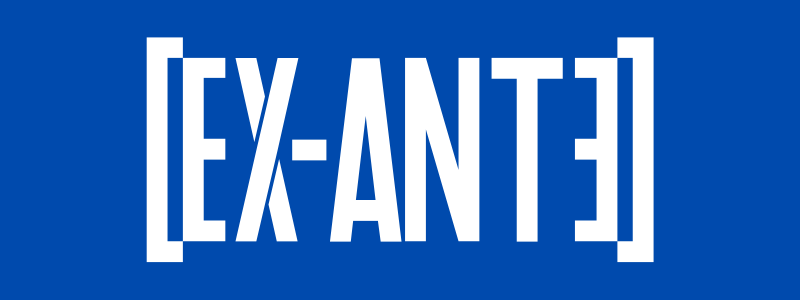Our partner Jorge Arredondo was interviewed by Diario Financiero regarding the strategies the Executive Branch is considering to alleviate the burden on the Labor Directorate (DT) in handling complaints under the Karin Law.
For months, labor attorneys have broadly agreed that the Labor Directorate (DT) is overwhelmed by the high volume of complaints triggered by the Karin Law—legislation aimed at eradicating workplace harassment and violence, emphasizing prevention as a key pillar within companies.
This concern became tangible when the Regional Labor Directorate of Valparaíso, in the context of a judicial case, acknowledged being overburdened due to the law’s enforcement since August of last year.
In court, the DT explained that the enactment of Law No. 21.643 significantly expanded the range of issues that could trigger complaints, leading to an exponential increase in filings by workers.
“As a ministry, we’ve been closely monitoring the implementation of this law, recognizing that it demands continuous institutional adaptation to align with this cultural shift,” said Labor Minister Giorgio Boccardo.
The regional DT also pointed out that the added workload “has led to a large number of medical leaves, which further complicates responding to all requests from employers and workers, and processing complaints within the legal timeframe.”
This situation, they added, “constitutes a genuine force majeure for the oversight body.”
In light of this, the Ministry of Labor is analyzing the situation and may take action based on its findings to reduce the DT’s workload and enhance the efficiency of investigations it does undertake.
Options Under Consideration
Currently, the Karin Law regulations require that, when a complaint is received—whether by the employer or the DT—special protection be provided to the affected individual, including dignified and impartial treatment and clear information about the investigation process.
The regulation explicitly states that “admissibility control of the complaint shall not be part of the investigation procedure.” If the complaint lacks sufficient information, the investigator must grant a deadline to complete it.
“An admissibility check could be useful, both for DT and employer-led investigations,” said attorney Carlos Gutiérrez.
However, the lack of a filtering mechanism has overwhelmed the DT with complaints, making it difficult to meet legal response times.
As a result, the Ministry—led by Minister Boccardo—is evaluating several alternatives. One option is to incorporate an admissibility filter into the regulations, while also encouraging effective preventive measures within companies. Many complaints, although not always related to harassment or abuse, seem to reflect a lack of prevention.
Another possibility, according to sources, is for the DT itself to limit its scope of action via an official directive.
Both proposals are still under review, and no final decision has been made.
“At a minimum, such a measure should include an objective list of guiding behaviors,” noted former DT director Marcelo Albornoz.
When asked, the Ministry of Labor neither confirmed nor denied the implementation of changes, but emphasized that the law’s effective enforcement requires ongoing adaptation.
“The implementation of the Karin Law has led to an increase in complaints, which demonstrates its success in building public trust and bringing to light previously hidden issues in our society. We’ve been supervising its implementation, aware that continuous institutional adaptation is necessary to support this cultural change,” stated Minister Boccardo.
Given this context, stakeholders in the labor field are expecting announcements on potential changes or adjustments, likely around August 1, when the law marks its first anniversary.
Attorneys Support the Initiative
Carlos Gutiérrez, partner at GNP Canales, believes that if implemented with objective and consistent standards, “an admissibility check could be useful, both for DT and employer investigations.”
He also suggested introducing mandatory public or private mediation instances to help resolve conflicts early—unlike current mechanisms—and reduce system overload.
Similarly, former DT director and partner at Albornoz & Cia, Marcelo Albornoz, said the agency will remain under intense pressure from the flood of harassment complaints, without the resources to properly enforce the law. Therefore, “urgent legislative and regulatory measures should be adopted,” he said.
He proposed that direct complaints to the DT be eliminated, with employers handling them first and the DT reviewing the employer’s investigation report.
“Right now, many companies refer cases to the DT—either because of the cost of hiring investigators, lack of internal staff, or simply lack of interest in resolving cases quickly,” he explained.
On the regulatory side, Albornoz argued that urgent changes are needed. For example, removing the option for workers to escalate complaints to the DT after initially submitting them to their employer, as this isn’t contemplated in the law.
He also suggested eliminating the requirement for companies to forward complaints to the DT when individuals in managerial roles are involved.
While he sees admissibility checks as a viable option, Albornoz insisted that such a measure “should, at a minimum, include an objective list of behaviors that should not be classified as harassment or violence, to avoid unnecessary investigations—and always under clear, objective criteria.”
Jorge Arredondo, partner at Albagli Zaliasnik, commented that given the volume of cases and the number of complaints lacking sufficient substance, “it could be advisable to establish common criteria for both the DT and employers regarding an admissibility process—applicable to both internal procedures and those conducted by the DT, which is already applying some form of this.”




